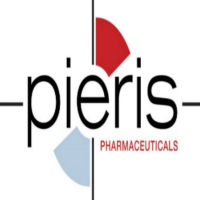预约演示
更新于:2025-05-07

OneSource Specialty Pharma Ltd.
更新于:2025-05-07
概览
标签
皮肤和肌肉骨骼疾病
内分泌与代谢疾病
重组多肽
生物类似药
疾病领域得分
一眼洞穿机构专注的疾病领域
暂无数据
技术平台
公司药物应用最多的技术
暂无数据
靶点
公司最常开发的靶点
暂无数据
| 疾病领域 | 数量 |
|---|---|
| 内分泌与代谢疾病 | 1 |
| 排名前五的药物类型 | 数量 |
|---|---|
| 生物类似药 | 2 |
| 重组多肽 | 2 |
| 排名前五的靶点 | 数量 |
|---|---|
| PTH1R(甲状旁腺激素受体) | 1 |
关联
13
项与 OneSource Specialty Pharma Ltd. 相关的药物靶点- |
作用机制- |
在研机构- |
在研适应症- |
非在研适应症 |
最高研发阶段终止 |
首次获批国家/地区- |
首次获批日期- |
靶点- |
作用机制- |
在研机构- |
在研适应症- |
非在研适应症- |
最高研发阶段无进展 |
首次获批国家/地区- |
首次获批日期- |
靶点- |
作用机制- |
在研机构- |
在研适应症- |
非在研适应症- |
最高研发阶段无进展 |
首次获批国家/地区- |
首次获批日期- |
2
项与 OneSource Specialty Pharma Ltd. 相关的临床试验ACTRN12618000013268
A single center, randomized, double blind, 3-treatment, 3-period, single-dose, cross over, comparative Phase-1 study to evaluate pharmacokinetics, safety, tolerability, and pharmacodynamics (PK/PD) of Stelis Teriparatide [rh-PTH (1-34)] with Forsteo® and Forteo® (teriparatide, Eli Lilly) in healthy volunteers following subcutaneous single dose administration of 20 µg Teriparatide
开始日期2018-03-15 |
ACTRN12615000358549
A randomized, double blind, 2-treatment, 2-period, single-dose, cross over, comparative study to evaluate pharmacokinetics, safety and tolerability of Stelis Teriparatide [rh-PTH (1-34)] [teriparatide, Stelis Biopharma Pvt. Ltd., India] with ForsteoRegistered Trademark (teriparatide, Eli Lilly Nederland BV, Grootslag 1-5, NL-3991 RA Houten, The Netherlands) in healthy volunteers following subcutaneous administration of a single dose of 20 mcg Teriparatide
开始日期2015-10-16 |
100 项与 OneSource Specialty Pharma Ltd. 相关的临床结果
登录后查看更多信息
0 项与 OneSource Specialty Pharma Ltd. 相关的专利(医药)
登录后查看更多信息
2
项与 OneSource Specialty Pharma Ltd. 相关的文献(医药)BioPharm International
Kinetic and structural differentiation of trypsin from different origins
作者: Buddha, Madhavan ; Hazra, Partha ; Aithal, Mahesh ; Kumar, Narra Naga Pavan ; Umamaheshwara, Rao K.
International Journal of Pharma and Bio Sciences
Monoclonal antibodies with ADCC and CDC enhancement for therapy
作者: Choudary, Kolla Bramhendra
5
项与 OneSource Specialty Pharma Ltd. 相关的新闻(医药)2025-02-27
Welcome to
Endpoints News’
manufacturing briefs, where we bring you essential news on new builds, collaborations, recalls and more.
Merck has received
a $30 million strategic fund from the state of Delaware’s Division of Small Business, a state spokesperson told Endpoints. And, Merck is considering building a new commercialization and launch facility in Delaware, the pharma company said.
Granules India has
entered
the peptide market by buying Swiss CDMO Senn Chemicals, the company said Friday. The acquisition, which is expected to close in the first half of 2025, will give Granules capabilities in making GLP-1 drugs and other peptides. The acquisition is worth Swiss franc 20 million ($22.3 million), the company told Endpoints.
Bavarian Nordic has
partnered
with India-based Biological E to scale up manufacturing of Bavarian’s chikungunya vaccine in low- and middle-income countries, according to a Tuesday press release. Bavarian will transfer the manufacturing technology of the vaccine to Biological E.
WuXi XDC has
signed
an expanded Memorandum of Understanding with LigaChem Biosciences. WuXi will provide its ADC discovery and manufacturing services for LigaChem’s multiple projects, the companies said Tuesday.
PanTera will
supply
the radioisotope actinium-225 to SK Biopharmaceuticals to use in its radiopharma therapies, the companies said Tuesday.
The European Union is
investing
€8.9 million ($9.3 million) to boost local manufacturing in the Caribbean, according to a Monday release. The funding will be used to improve the quality and accessibility of medicines in the region.
Hims & Hers Health
acquired
a manufacturing facility to make peptide-based drugs, the company said Friday. No financial terms were disclosed. The company’s stock fell last week after the FDA announced
shortages of Ozempic and Wegovy have been resolved
, a blow to Hims’ compounding business.
The Canadian government is
buying
500,000 doses of GSK’s bird flu vaccine, according to a Feb. 19 press release. Around 60% of the doses will be rolled out immediately and 40% will be placed in its national stockpile.
CDMO OneSource Specialty Pharma is
aiming
for a revenue of $400 million in the next three to four years and will expand its capacity to produce over 200 million cartridges like injections in the next few years, the CEO said in an interview with
CNBC
on Tuesday.
Recipharm has
opened
a new facility in Zwickau, Germany — dubbed its “Pilot Scale Development Centre” — which will be used to manufacture tablets and hard capsules, the CDMO said Thursday. The site was
announced
in October last year.
Gerresheimer’s glass packaging business
saw
some
destocking
from customers throughout 2024, with sales decreasing to €899 million ($942 million) from €927 million ($972 million) reported in 2023, the company said Wednesday. The company has cut its overall 2025 forecast to between 3% and 5%, down from the original 7% to 10% range.
疫苗并购
2024-11-21
LONDON
— Thousands of delegates flooded into the narrow corridors of the Waldorf Hilton this week to attend the Jefferies London Healthcare Conference. It was so busy that at one point, security had to implement a one-in, one-out system, much to the dismay of attendees who had meetings in neighboring buildings.
Endpoints News
attended presentations at the confab by companies with manufacturing services and also met some execs to get a sense of what’s hot in the drug production industry. And, in the backdrop of the pending Novo-Catalent deal, if there was one word on manufacturers’ lips,
it was GLP-1s
.
Ypsomed looks to triple capacity by 2030:
The drug delivery company is planning for global expansion, CFO Samuel Künzli told Endpoints on the sidelines of the conference. The Swiss-based packaging manufacturer is looking to build its presence in the US, Germany and China, Künzli said. Among many other companies, Ypsomed works with Novo Nordisk to package its blockbuster GLP-1 drugs.
The expansion will help Ypsomed develop local supply chains, which is the current trend for manufacturers, Künzli said. Despite concerns over potential tariffs under the incoming Trump administration, injectables and packaging appliances are a fraction of the cost of a drug and shouldn’t impact manufacturers like Yposmed, he added.
“Bulging” demand for injectable CDMOs:
In a lackluster biotech funding environment impacting most CDMOs, manufacturers with fill-finish abilities for GLP-1s are unsurprisingly fielding many inquiries. OneSource, a newly-launched injectable manufacturer, is already “bulging at the seams” with orders from such customers with injectable assets, with its capacity being fully booked, CEO Neeraj Sharma told Endpoints. OneSource has drug-device combination services as well as biologics, soft gel and injectable production abilities.
Similarly, National Resilience is raking in from its GLP-1 manufacturing. CEO Rahul Singhvi told delegates it is expecting a 30% year-on-year increase in overall revenue growth for the next several years.
Meanwhile, biosimilar manufacturing is constrained:
Biosimilar biotech Alvotech is sounding the alarm that there is an industry shortage of biosimilar CDMOs. In that vein, CEO Róbert Wessman said during its company presentation Tuesday that other similar biotechs should bolster their in-house manufacturing. But it’s not straightforward — not only does it take around six to seven years to develop a biosimilar product, but relevant factories also have to be built, he added.
Charles River’s “business is in good shape for the future,”
CFO Flavia Pease told delegates at Jefferies. The manufacturer’s CDMO solutions business now has three commercial stage projects, said Pease. Further, around 50% of its manufacturing clients are also using its biologics testing capabilities, which brings in further revenue, she added.
While Charles River anticipates the slow biotech funding to gradually improve, it will still continue to put pressure on its outlook for the next quarters, she added. “It’s been a little bit of a bumpy road, if you will, but I think that business is in good shape for the future.”
2023-11-08
Global malaria cases have been on the rise in recent years, according to the World Health Organization.
Universal Corporation Limited, a unit of Strides Pharma Science, became the first African drug manufacturer to snare a World Health Organization (WHO) pre-qualification (PDF) to produce the anti-malarial drug sulfadoxine-pyrimethamine and amodiaquine (SPAQ).
The treatment is a combination regimen used to prevent malaria in children living in areas with seasonal malaria transmission.
The WHO's pre-qualification program is designed to set standards of quality, safety and efficacy in manufacturing medicines. With the designation, Kenya-based UCL will look to boost regional production and access to essential medicines on the African continent, where about 95% of all malaria cases and 96% of deaths from malaria occur, the company said in a Nov. 6 press release.
“Universal Corporation is committed to advancing the fight against malaria and improving the health and well-being of communities across Africa,” Perviz Dhanani, founder and managing director of UCL, said in the release. “The WHO prequalification of our SPAQ production is a significant step forward in achieving these goals.”
In 2022, WHO began to recommend SPAQ for any child at high risk of severe malaria in areas with seasonal malaria transmission. This recommendation resulted in more than 48 million children being protected from malaria, significantly reducing the burden of this deadly disease, the organization said.
According to WHO, the reported cases of malaria hit 247 million in 2021, compared with 245 million in 2020 and 232 million in 2019.
In an unrelated but recent move, Strides in September said it planned to spin off its CDMO and soft gelatin businesses into a single entity that will be known as OneSource.
The goal of the spinoff, which is expected to happen in the next year, is to establish a specialty pharmaceutical CDMO company that offers services for biologics, oral softgels, complex injectables, sterile injectables and other complex drug delivery systems.
快速通道
100 项与 OneSource Specialty Pharma Ltd. 相关的药物交易
登录后查看更多信息
100 项与 OneSource Specialty Pharma Ltd. 相关的转化医学
登录后查看更多信息
组织架构
使用我们的机构树数据加速您的研究。
登录
或

管线布局
2026年02月08日管线快照
管线布局中药物为当前组织机构及其子机构作为药物机构进行统计,早期临床1期并入临床1期,临床1/2期并入临床2期,临床2/3期并入临床3期
临床1期
2
11
其他
登录后查看更多信息
药物交易
使用我们的药物交易数据加速您的研究。
登录
或

转化医学
使用我们的转化医学数据加速您的研究。
登录
或

营收
使用 Synapse 探索超过 36 万个组织的财务状况。
登录
或

科研基金(NIH)
访问超过 200 万项资助和基金信息,以提升您的研究之旅。
登录
或

投资
深入了解从初创企业到成熟企业的最新公司投资动态。
登录
或

融资
发掘融资趋势以验证和推进您的投资机会。
登录
或

生物医药百科问答
全新生物医药AI Agent 覆盖科研全链路,让突破性发现快人一步
立即开始免费试用!
智慧芽新药情报库是智慧芽专为生命科学人士构建的基于AI的创新药情报平台,助您全方位提升您的研发与决策效率。
立即开始数据试用!
智慧芽新药库数据也通过智慧芽数据服务平台,以API或者数据包形式对外开放,助您更加充分利用智慧芽新药情报信息。
生物序列数据库
生物药研发创新
免费使用
化学结构数据库
小分子化药研发创新
免费使用
